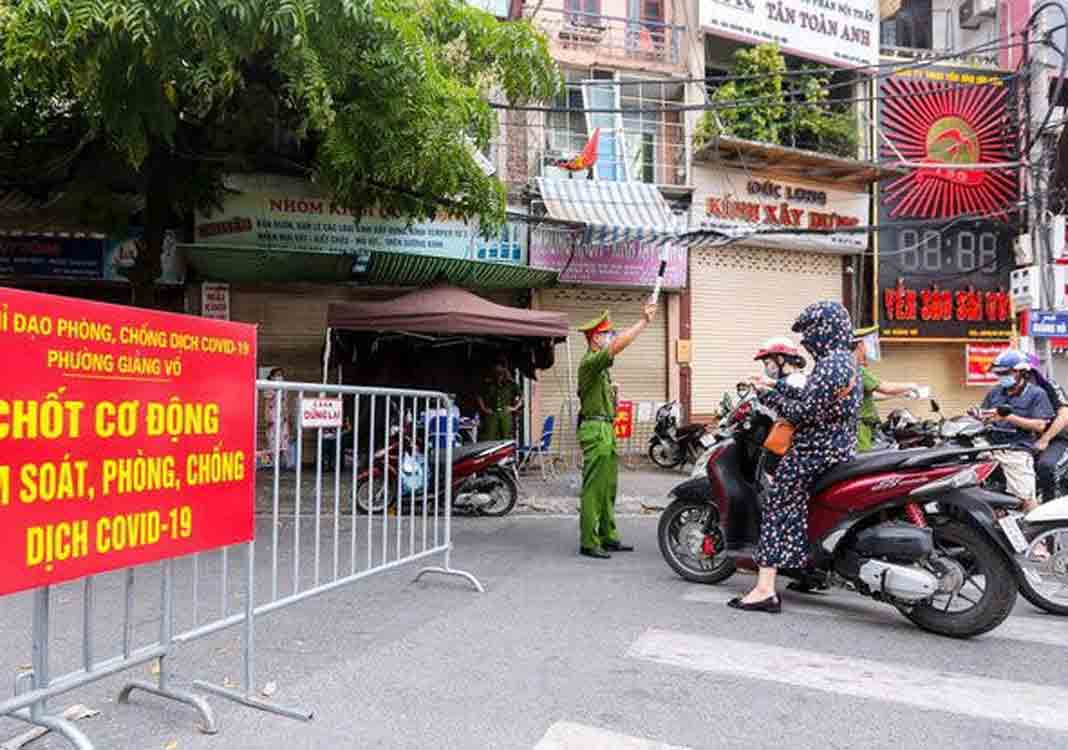HCMC – The prime minister’s Directives 15, 16 and 19 and some other legal documents on anti-pandemic measures have been suspended from application nationwide.
On October 12, the Government issued a resolution on adapting safely and flexibly to the Covid-19 pandemic and controlling it effectively, giving guidance on responses to four levels of the pandemic transmission risk—low, moderate, high and extremely high, the local media reported.
There are three criteria to assess the pandemic transmission risk: the number of community-infected cases, the vaccination rate and the treatment capacity, according to Resolution 128. The Ministry of Health will give instructions about these criteria and the governments of cities and provinces will base on their reality to upgrade or downgrade their pandemic transmission risk levels and report the change at least 48 hours in advance.
Accordingly, indoor activities for groups of participants will be banned in extremely-high-risk and high-risk areas but the number of participants in these activities in low-risk areas will not be limited.
Public transport services will be allowed in low-risk areas, banned or restricted in extremely-high-risk and high-risk areas and have their capacity reduced in moderate-risk areas.
Production and business units, household businesses, cooperatives and construction sites are also allowed but owners of these units must have plans to employ anti-pandemic measures. The same requirement was issued for trade centers, supermarkets, traditional markets, restaurants and eateries.
Beauty centers, massage and karaoke parlors, discos and bars as well as religious activities in extremely-high-risk areas must be suspended, while those in moderate- and high-risk areas will be limited.
Besides Directives 15, 16 and 19, Item 1 of Article 1 in the Government’s Resolution 86 dated August 6 and the national anti-Covid steering committee’s Decision 2686 dated May 31 were also invalidated.
If cities and provinces want to employ anti-pandemic measures which are stricter than those in the Government’s newly-issued resolution citywide or province-wide, chairpersons of cities and provinces must first report the situation to the Ministry of Health and the prime minister.
Based on the instructions of the Ministry of Health and other relevant ministries and agencies, localities will decide anti-pandemic measures, including specific instructions on the number of participants in production and business activities, services, cultural programs and other events gathering a high number of people.
Cities and provinces can flexibly apply supplemental regulations but they must not go against the Government’s regulations or cause inconveniences in goods circulation, production, business and residents’ travel.
If the Government’s regulations are not appropriate and feasible for the localities, they must quickly report such disparities to the agencies issuing the regulations. These agencies must immediately work out solutions to remove the obstacles and amend the regulations.
Chairpersons of cities and provinces will also decide the lockdown in areas on the smallest possible scale and deploy social welfare policies so that local residents can easily access healthcare services and comply with anti-pandemic regulations.
The Government’s newly-issued resolution is aimed at protecting the health and lives of residents, minimizing the number of new Covid-19 cases and deaths, helping socioeconomic activities recover, ensuring security and social order and returning to a new normal life at the earliest, expected later this year.
Localities should avoid issuing and applying unnecessary regulations that cause negative impacts on the production and business and livelihoods of locals.
They must strive to achieve the dual goals of fighting the pandemic and ensuring stable socioeconomic development but consider the health and lives of residents as the first priority. Anti-pandemic measures must be based on science, and on the reality and conditions of the country so that residents can quickly access medical services while travel, transport and production can continue.









